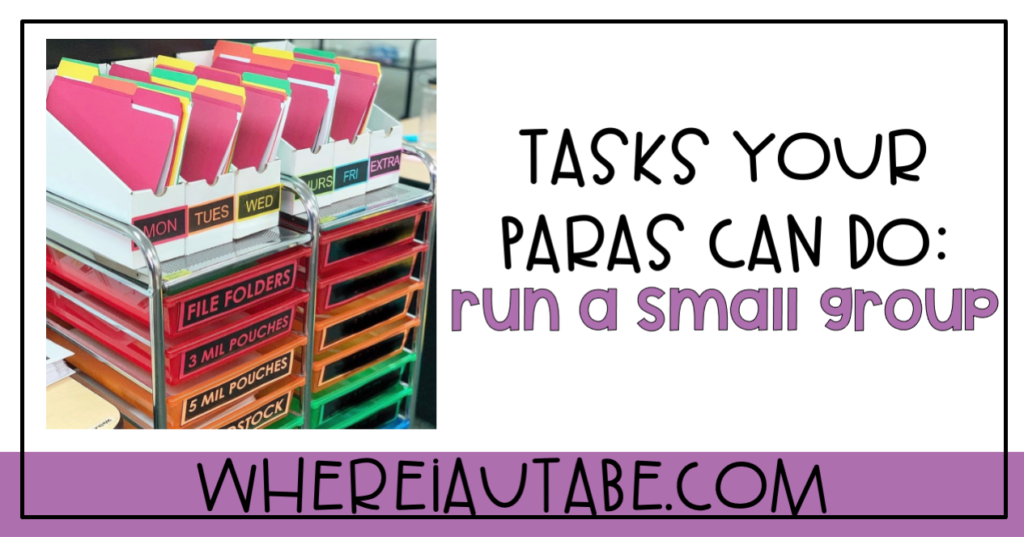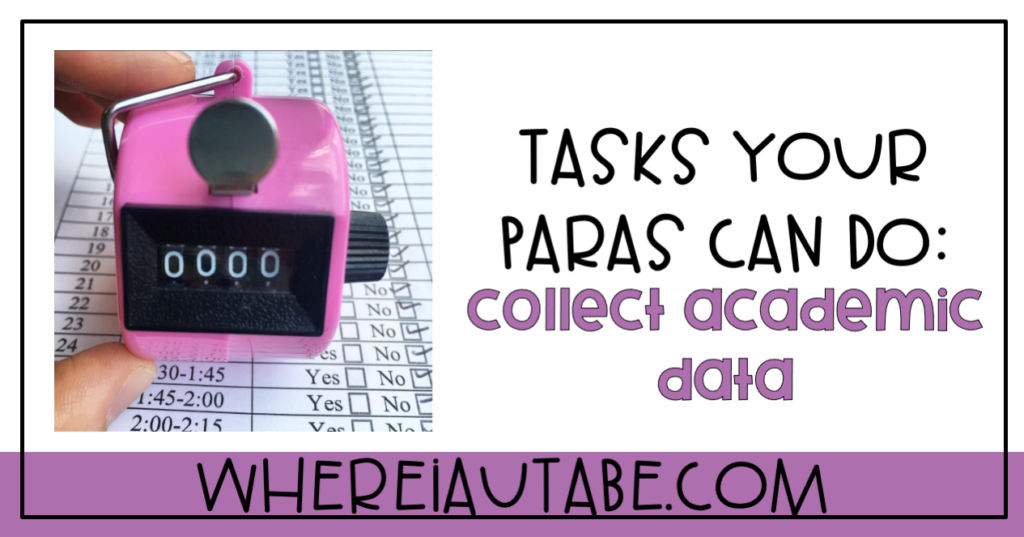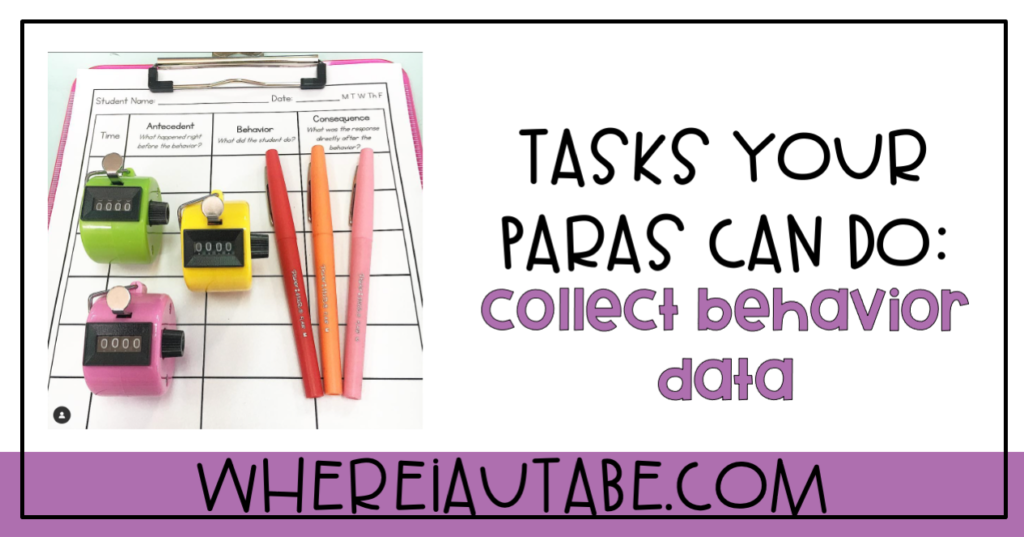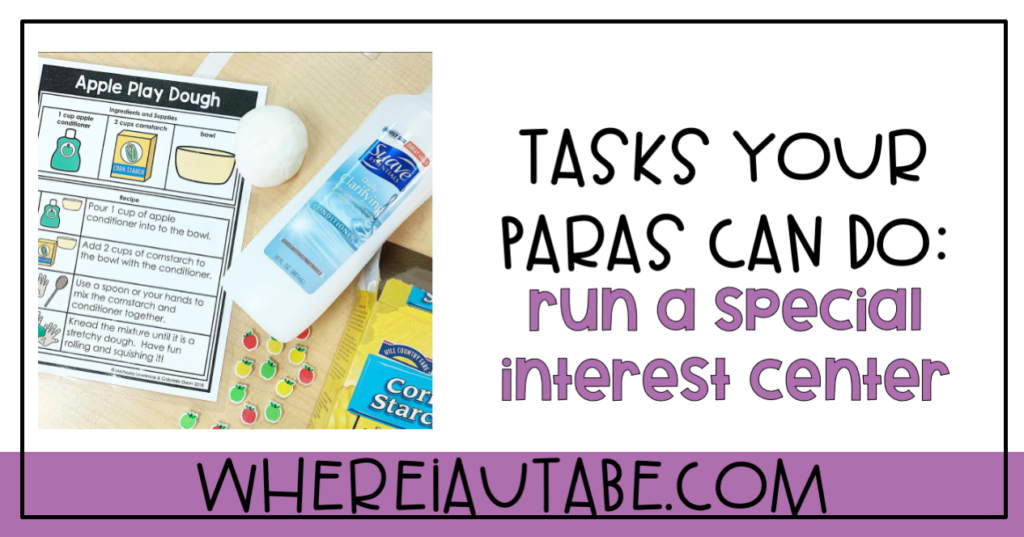If there is one I have learned in my years of working with paraprofessionals, it is that paras are teachers too. My paraprofessional is my right hand and my left hand. She is the glue that keeps us together. I realize that sometimes it is our first instinct to give them passive work because their job title is a “teaching assistant”. But they can do so much more than laminating and resetting work tasks. Here are some ways that your paraprofessionals can be your best asset in your classroom.

1. Small group instruction
Giving my paraprofessional a time in our schedule to run a small group was what helped me first realize the potential that is properly delegating classroom tasks. This typically looked like a follow up activity or guided worksheet to the lesson I provided. If my para were running the small group, this would give me the chance to directly work with students who needed higher levels of support.

2. Academic data collection
You more than likely are managing over 50 IEP goals in your classroom. Delegating some of this to your paraprofessional will make your life so much easier. Not only does that lighten your load, this also helps your para see how much progress is being made by each student. This helps with the “buy-in” factor. Once they see progress, they’ll want to be more invested in continuing that progress.

3. Behavior data collection
You need your paraprofessionals to be tracking behavior data alongside you. Why? Because they more than likely are spending more time with your students than you are. When you leave to run an IEP meeting, eat lunch, or have a parent conference, they need to be able to continue monitoring behaviors. The easiest way we do this in my classroom is with these ring clickers. They’re discrete and easy to use.
4. IEP goal practice
Consider including a time in your schedule where your para can help with IEP goals. Not necessarily collecting data, just ensuring the student IEP goals are continually being practiced and not skipped over. It doesn’t have to be anything formal. A fluency center or even just a morning binder that contains some IEP goal focused work is perfectly fine.

5. Run a special interest center
Think about your paraprofessional’s strengths and interest. Do they love to cook in the classroom? Do they have a particular passion for science experiments? When I was student teaching, my mentor teacher delegated Friday cooking to her para. She thrived running this little center because it truly was a creative outlet for her. Delegating a special interest center to your para is a win-win for everybody.
I hope these ideas inspire you to delegate to your para in one new way. They can do so much more than prepping materials! Be sure to check out my other teaching blogs if you enjoyed reading this tips.
Happy teaching,
Sofie








